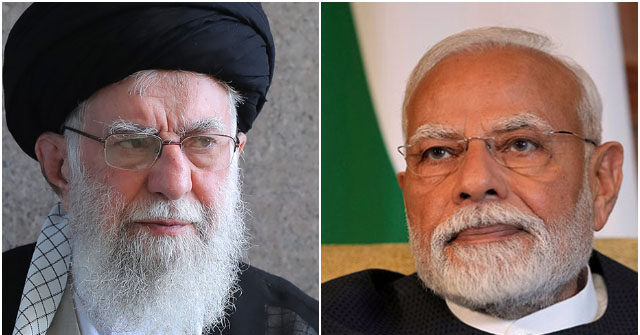At a U.N. Security Council (UNSC) meeting on Wednesday, several countries that share ideological interests with the Taliban, or have financial interests in Afghanistan, urged the council to “engage” with the junta despite its absolute refusal to comply with U.N. human rights standards.
UNSC heard testimony from human rights experts about the Taliban’s brutal misrule, especially its denial of basic human rights to women and girls. The Taliban’s conduct had devastating consequences after the September earthquake in Afghanistan, where women were denied medical treatment, and even left trapped under the rubble of buildings, because the Taliban adamantly refused to allow other women to work with relief operations.
“As of two weeks ago, women and girls are not only not allowed into regular schools, but they are now banned from going to Islamic schools,” reported human rights activist Hanifa Girowal.
“If you are a woman in Afghanistan, you are faced with selective punishment on any public engagement,” she said, asking UNSC to take urgent action on behalf of Afghan women.
The United States pointed out that “the international community’s approach to assistance and engagement has failed to yield sustainable results,” but that did not stop several other countries from insisting on even more unconditional “engagement,” no matter what crimes the Taliban perpetrates against humanity.
India essentially pretended the Taliban does not exist and urged UNSC to pursue “closer engagement with the Afghan people.”
“India and Afghanistan share a civilizational relationship. Being contiguous neighbors, our bonds of friendship span many centuries and this history inspires us to foster closer engagement with the Afghan people. India has a paramount interest in ensuring peace and stability in Afghanistan,” said Indian representative Parvathaneni Harish.
India has been cultivating closer ties with the Taliban junta, including high-level diplomatic contacts. The Taliban regime views warmer relations with India as a “diplomatic triumph,” as Michael Kugelman of the Wilson Center put it to the BBC in January.
“India has invested more than $3 billion in over 500 projects across Afghanistan, including roads, power lines, dams, hospitals, and clinics. It has trained Afghan officers, awarded thousands of scholarships to students and built a new parliament building,” the BBC noted.
Iran, a regime noted for its own harsh treatment of women, told UNSC that the international community “has no choice but to engage” with the Taliban.
“Constructive, practical engagement is essential to address the ongoing humanitarian and economic crisis that continue to threaten regional stability. In this regard, we stress the humanitarian assistance must never be politicized,” Iran said.
Afghanistan’s neighbor Kyrgyzstan also called for “strengthening bilateral collaboration, particularly in the spheres of trade, investment, transport, energy and overall economic development” with the Taliban junta.
Kyrgyzstan gave the Taliban a diplomatic victory in September 2024 by removing the Islamist extremists from their list of banned terrorist organizations. Russia took the same step in April 2025.
Russia, which became the first nation in the world to recognize Taliban rule in July, pressed for closer relations with Kabul to address security concerns.
“We agree with the Secretary-General’s assessment of Afghanistan’s complex internal political situation. We are concerned about the ongoing security risks posed by ISKP. We recognize the Taliban’s efforts, but unfortunately, we see that these efforts are not sufficient,” said Russian representative Vassily Nebenzia.
“We regret the hopeless attempts by some Western donors to exert a stranglehold on the Taliban, to talk to them in the language of ultimatums and, at the same time, to hinder any efforts — including through the UN — to establish trust-based interactions with them,” the Russians complained.
ISKP stands for Islamic State – Khorasan Province, the ISIS chapter in Afghanistan. ISKP is seen as a security threat by almost every state in the region, it has made violent efforts to take control of Afghan territory from the Taliban.
China, which has big plans for Afghanistan’s mineral wealth and wants to bring the Taliban into its Belt and Road infrastructure program, said “mutual integration between Afghanistan and the international community requires long-term engagement.”
“Over 23 million Afghans require humanitarian assistance, and significant funding cuts mean that only a small percentage of needs are met,” the Chinese complained, asserting that “one country” – meaning the United States – has some special historical responsibility to bankroll the Taliban regime.
Read the full article here
